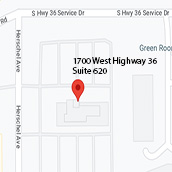Rights and duties of a personal representative
A personal representative is a person appointed by the Court to manage the estate of a deceased person. A person drafting a Will can list an individual he/she would like to manage her estate after her passing. Generally, the Court will follow the deceased person’s wishes and appoint the individual listed in the Will. A personal representative has rights and duties that he or she is required to follow.
Rights:
- Compensation: A personal representative has the right for reasonable compensation for managing the estate after decedent’s death. The Will can lay out the compensation or modify this particular right.
- Possession: A personal representative has the right to possess the property of the decedent as it was left at the time of death. This right allows the personal representative to gather all of the assets of the estate and report it to the court for disbursement.
- Reimbursement: If the personal representative spends his or her own money to manage the estate and get it ready for sale or disbursement, the personal representative has the right of reimbursement. This includes a reimbursement for reasonable attorney’s fees spent for representation.
- Close the estate: One the assets are collected, and disbursed pursuant to a Court order, the personal representative has the right to close the estate with the Court. This releases any further liability a personal representative could be subject to.
Duties:
- Fiduciary Duties: From the time a personal representative is appointed, to the time the estate is close, the personal representative owes a fiduciary duty to the estate. The personal representative also owes duty to the beneficiaries of the probate estate. Following are some of the duties of a personal representative:
- Duty of fair dealing
- Duty of loyalty
- Duty of impartiality
- Duty to fully disclose the estate
- Duty to preserve and maintain the estate assets.
- Duty not to commingle personal and estate assets
- Duty to notify the creditors of the estate
- Duty to notify the beneficiaries of the estate
- Duty to gather the assets of the estate
- Duty to file inventory with the Court and inform the Court of the assets.
- Duty to distribute the assets of the estate
- Duty to file a final accounting with the Court
- Duty to close the estate once distribution occurs.
The above-referenced list with duties is not an exhaustive list. If you plan on getting a Will drafted, contact a lawyer, like an estate planning lawyer Arlington TX trusts, to discuss about listing a personal representative for your estate.
Thanks to our friends and contributors from Brandy Austin Law Firm, PLLC for their insight into rights and duties of a personal representative.






